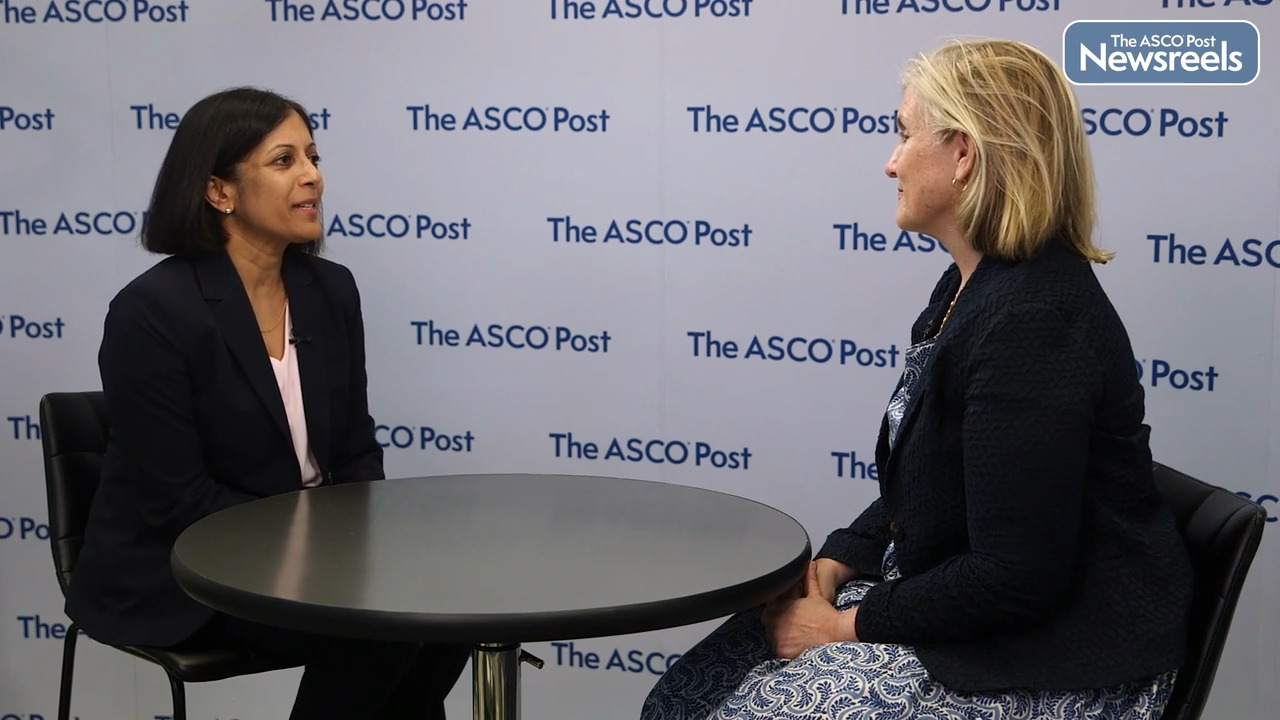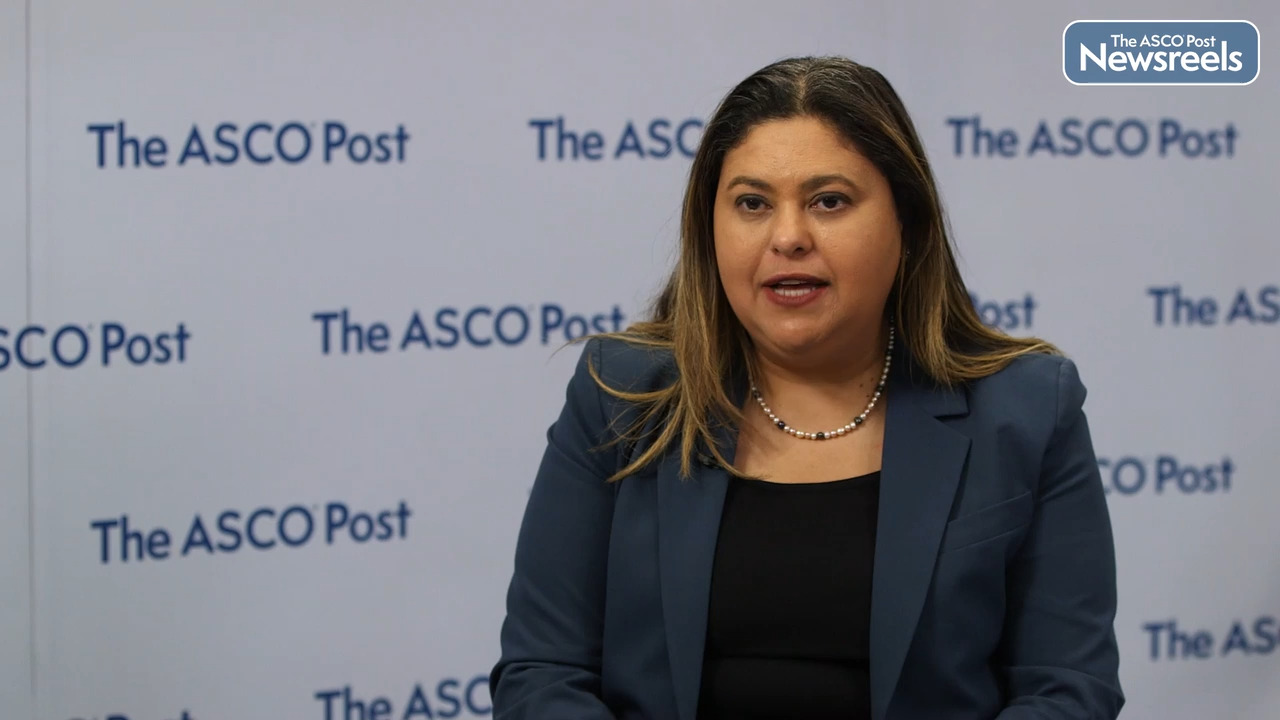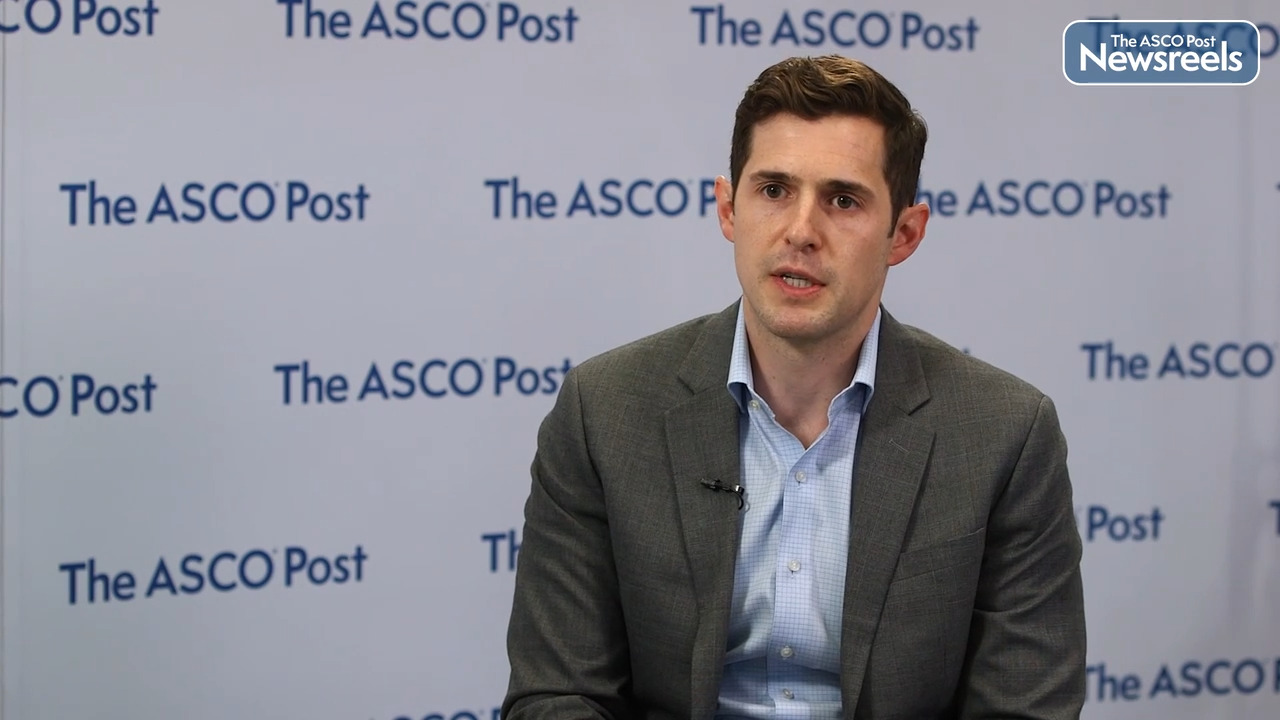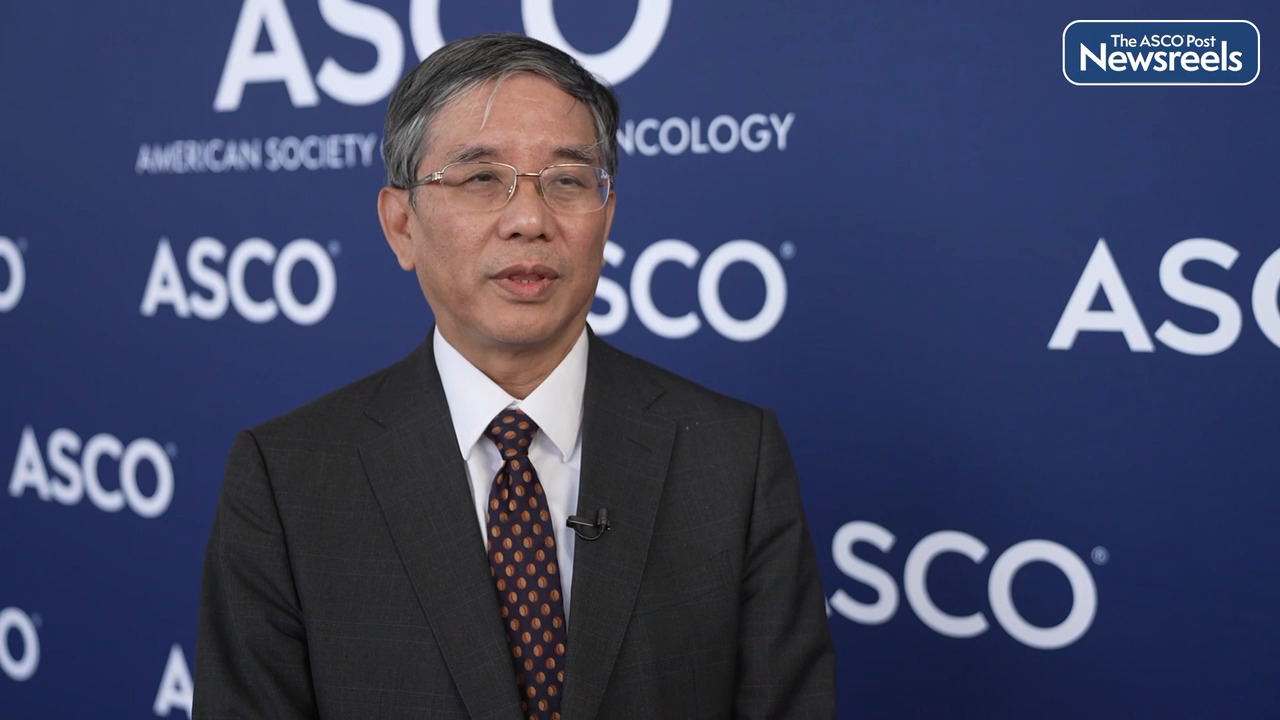Georgina V. Long, MD, PhD, on Resected Melanoma: Biomarkers for and Efficacy of Adjuvant Nivolumab vs Placebo
2023 ASCO Annual Meeting
Georgina V. Long, MD, PhD, of Melanoma Institute Australia and The University of Sydney, discusses new data showing that patients with resected stage IIB/C melanoma who were treated with adjuvant nivolumab had prolonged recurrence-free survival compared with placebo across all biomarker subgroups. The baseline biomarkers most predictive of prolonged recurrence-free survival with nivolumab were high interferon gamma score, high tumor mutational burden, CD8 T-cell infiltration, and low C-reactive protein (Abstract 9504).
Transcript
Disclaimer: This video transcript has not been proofread or edited and may contain errors.
Georgina V. Long:
Resected Stage 2B and 2C melanoma has a very poor prognosis. In fact, at five years, patients with stage 2C melanoma have a 45% risk of recurrence. And for stage 2B melanoma, 35% risk of recurrence. The survival of this group of patients is worse than that of stage 3A melanoma and the survival of stage 2C melanoma is equivalent to the survival of stage 3B melanoma. This is a poor prognostic group. Checkmate 76K explored adjuvant nivolumab versus placebo in resected stage 2B and 2C melanoma in patients who had undergone a wide local excision and a sentinel node biopsy, which was negative.
790 patients were randomized two to one to nivolumab versus placebo. We've already seen the relapse-free survival primary analysis last year, and there was a 58% reduction in the risk of recurrence with adjuvant nivolumab. We are now presenting the exploratory biomarker analysis from this trial. So baseline, primary melanoma tissue, and baseline CRP, serum CRP was correlated with outcome within each arm and versus each arm. And what we found was that for every biomarker subgroup, nivolumab improved the relapse-free survival over placebo.
And this included tumor mutation burden, interferon gamma, PD-L1 expression at baseline, CD8 infiltration at baseline, the CRP. So when we compared the prognostic biomarkers overall in the trial, we found that the two factors that were most important for prognosis, so predicting recurrence in the total trial population, that was the CRP and the stage. However, when we did our multivariate model to look at what was predictive of best outcome with adjuvant nivolumab over placebo, we found that the baseline biomarkers that were predictive or most predictive were the interferon gamma at baseline and the tumor mutation burden.
Our next steps are to make a multifactorial model, which includes both clinical and tissue biomarkers to predict outcome of patients with resected 2B and 2C melanoma treated with adjuvant nivolumab.
Related Videos
The ASCO Post Staff
Smitha Krishnamurthi, MD, of the Cleveland Clinic, and Deb Schrag, MD, MPH, of Memorial Sloan Kettering Cancer Center, discuss phase III findings from the PROSPECT trial, which showed FOLFOX chemotherapy with selective use of radiation therapy and sensitizing fluoropyrimidine (5FUCRT) is noninferior to 5FUCRT for the neoadjuvant treatment of patients with locally advanced rectal cancer, prior to low anterior resection with total mesorectal excision (Abstract LBA2).
The ASCO Post Staff
Nagla Abdel Karim, MD, of the Inova Schar Cancer Institute, University of Virginia, discusses phase II data showing that maintenance atezolizumab plus talazoparib improved progression-free survival in Schlafen-11–selected patients with extensive-stage small cell lung cancer. This study demonstrated the feasibility of conducting biomarker-selected trials in this disease, paving the way for future evaluation of novel therapies in selected populations (Abstract 8504).
The ASCO Post Staff
Reid Merryman, MD, of Dana-Farber Cancer Institute, discusses his findings on the regimen of epcoritamab plus rituximab and lenalidomide for patients with high-risk follicular lymphoma. Regardless of whether their disease progressed within 24 months of first-line chemoimmunotherapy, this regimen showed antitumor activity and a manageable safety profile in patients with relapsed or refractory disease. Epcoritamab, a subcutaneous T-cell–engaging bispecific antibody, may abrogate the negative effects of high-risk features (Abstract 7506).
The ASCO Post Staff
Lisa A. Carey, MD, of the University of North Carolina at Chapel Hill, and Javier Cortes, MD, PhD, of the International Breast Cancer Center and Universidad Europea de Madrid, discuss phase II findings showing that one in three patients with HER2-positive early breast cancer may safely omit chemotherapy. Among the chemotherapy-free patients treated with trastuzumab and pertuzumab, the 3-year invasive disease–free survival was 98.8%, with no distant metastases (Abstract LBA506).
The ASCO Post Staff
James Chih-Hsin Yang, MD, PhD, of the National Taiwan University Hospital and National Taiwan University Cancer Center, discusses the latest data from the phase III KEYNOTE-789 study, which evaluated the efficacy and safety of pemetrexed plus platinum chemotherapy (carboplatin or cisplatin) with or without pembrolizumab in the treatment of adults with EGFR tyrosine kinase inhibitor–resistant, EGFR–mutated, metastatic nonsquamous non–small cell lung cancer (NSCLC) (Abstract LBA9000).





